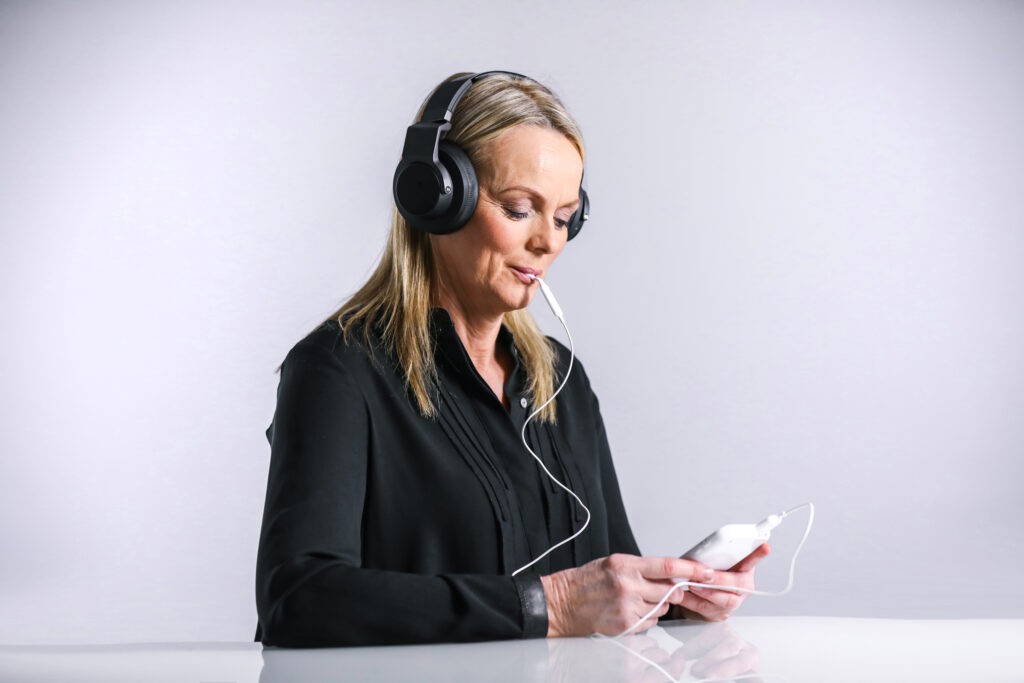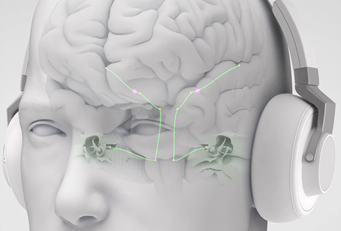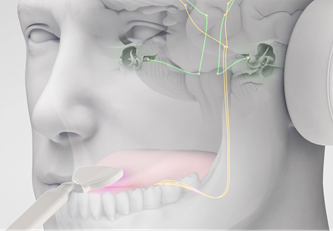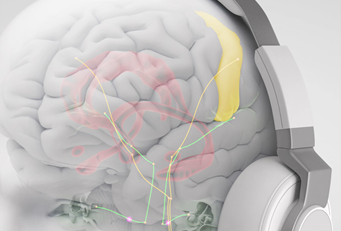It’s commonly known as ‘ringing in the ears’ but tinnitus can manifest as a buzzing, roaring, humming, hissing clicking, or even something else.
Regardless of the sound, this condition ranges from downright annoying to deeply distressing. A new treatment device has been developed which has been clinically proven to soothe and relieve the symptoms of tinnitus.

If you have tinnitus, you’re not alone.
It’s a common medical condition estimated to affect between 10-15% of the global population. It’s a neurological issue which people experience as a sound or noise that does not have an external source. Although it’s more common in adults, it can affect people of all ages.
Tinnitus varies from person to person. For some its sound is a constant droning soundtrack to their lives while to others, it’s something which may only become bothersome during quiet times such as when they put their head on the pillow to get some sleep. In mild cases, it’s an issue that the person can learn to live with. In cases where it’s more severe, tinnitus can result in significant stress, negatively impacting the person’s quality of life.
The search for an effective tinnitus treatment
Due to the nature of this ‘phantom’ condition, which can be anything but phantom to those who experience it, finding a clinically effective treatment for tinnitus remains elusive. A recent poll carried out in Ireland found that 60%* of tinnitus patients commence their treatment journey by presenting to their GP. GPs then tend to refer the patient onto a consultant ENT who refer to an audiologist, or vice-versa. This lack of a standard for tinnitus care leads to a cycle which tends to leave the patient feeling ignored and frustrated.
These poor clinical outcomes can deter those suffering from tinnitus from seeking out treatment. In the UK, 76% of tinnitus patients have never used any form of tinnitus treatment with almost 60% of patients not feeling informed about their tinnitus treatment options.*
Though a cure has not been found, an Irish medical technology company, Neuromod Devices, has developed a treatment device called Lenire that can relieve the symptoms of tinnitus.
How Lenire works



Promising study results
The results of a recent large-scale clinical trial of the device, involving 191 people, were published in Nature – Scientific Reports. They are very promising for people with subjective tinnitus.
The trial involved 12 weeks of self-administered treatment (30-60 minutes per day) with the Lenire device. The patients’ progress was monitored for a further 12 months after they finished treatment.
The results of these trials were conclusive: 95%** of participants who used Lenire as directed, reported improvement in their tinnitus symptoms***. Furthermore, one year after the treatment with Lenire ended, 91% of compliant participants reported a sustained improvement in their tinnitus**.
Book an appointment with our partner clinics to see if Lenire is suitable for you
Find the closest clinic to you providing treatment with Lenire on our map.
References
*Neuromod Market Research, 2021
**As measured by Tinnitus Handicap Inventory score
***Conlon et al., Different bimodal neuromodulation settings reduce tinnitus symptoms in a large randomized trial, Sci Rep, https://doi.org/10.1038/s41598-022-13875-x (2022)